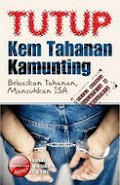Israel's brutal attack on Gaza has not just left 1,330 dead bodies, including those of 437 children, but also a Turkey that is very bitter against the Jewish state. Turkish society deeply felt and shared the suffering of the Palestinians in the Strip and rallied against the bombs that hit them.
The last time I saw such a tense public sentiment was the early 1990s, when Bosnians were subjected to "ethnic cleansing" by Serbian nationalists. The situation in Gaza was more complex, to be sure, but it was perceived in Turkey as something similar to the slaughter of Muslims in the Balkans.
Therefore, it wasn't a surprise to see the Turkish Prime Minister Tayyip Erdoğan say harsh words against Israel. He was just mirroring the public sentiment. And this was more than populism, as some could ascribe to a politician who is on the eve of local elections. Mr. Erdoğan was sincere in his feelings. When he visited a group of wounded Palestinians that were brought to an Ankara hospital, people noticed tears in his eyes.
Anger versus balance
But while strong emotions are worthy of respect, diplomacy more so needs nuance and deliberation. And those are not the highest qualities of Mr. Erdoğan. He is rather known to be a man who minces no words and, as he put himself, who thinks "anger is a rhetorical art." So, as he has done many times before on many other issues, including domestic ones, he sounded unbalanced -- and even pro-Hamas. As Sedat Ergin, the editor-in-chief of daily Milliyet, put it in these pages yesterday, his whole Gaza rhetoric was "problematic."
By looking at that, some commentators are arguing these days that Turkey has become close to the pro-Hamas and anti-Israeli axis, which is represented by Iran and Syria. Consequently, some experts doubtfully ask whether Turkey is still a Western ally at all.
Just like Mr. Erdoğan's rhetoric, these are inflated comments. No, there is no doubt that Turkey is a Western ally. And, no, Turkey is not pro-Hamas. But Turkey is a Western ally who has gained the confidence of Hamas, "the Arab street," Syria, and even Iran. And this is not a bad news at all, if it can be utilized for building peace in the region.
One needs to see this: Turkey has been talking to Hamas, but unlike Iran, it has been telling the radical Islamic group to calm down and integrate into the peace process with Israel. Turkey indeed has become very popular among the Arab masses, but it has gained this by calling for not a "world without Zionism," but a world of peace and justice. Turkey's reaction was not against Israel itself, but what she had done in Gaza.
No wonder Turkey's foreign policy establishment has recently taken steps to correct the misunderstanding that Mr. Erdoğan's harsh words have provoked. First, President Abdullah Gül, whose experience and role in foreign policy is unmistakable, called his Palestinian counterpart, Mahmoud Abbas, and then declared "the importance Turkey attributes to the solidarity, unity and integrity of Palestinians under the leadership of Abbas." You can read this as a confirmation of the fact that Turkey is in line on this matter with the international community. Then foreign minister Ali Babacan spoke to journalists and said, "We can't approve what Hamas does; however, it is not possible to maintain peace by ignoring Hamas." He also warned the group had to decide whether it would remain as an armed organization or a political party.
What this means is that Turkey disapproves the terrorist tactics of Hamas and its insistence on not recognizing Israel's right to exist. But it also sees that peace is impossible without Hamas being a part of it and hopes to persuade the group to open the way for, at the very least, a "hudna," a long term truce with Israel.
A note to Senator Mitchell
That's why the new U.S. special envoy to the Middle East, former Senator George J. Mitchell, whose appointment was a very wise decision by President Obama, should also put Turkey on his countries-to-go list. I am sure he will benefit from a meeting with Ahmet Davutoğlu, the top foreign policy adviser to Mr. Erdoğan, and who recently helped persuading Hamas to declare ceasefire when Israel announced its own.
Meanwhile, there is something else that Mr. Mitchell, and the Obama administration, urgently needs to consider: Israel continues to steal Palestinian lands by building or allowing Jewish Settlements in West Bank. This illegal usurpation makes the Palestinians, and others in the region, to think that a two-state solution is impossible because Israel's expansionist ambitions will never end. It should be not just stopped, but also pushed back.
In other words, let the countries of the region, including Turkey, persuade Hamas that a world with Zionism is acceptable. But, on the other hand, America should persuade the Israelis that their Zionism needs to be much less paranoid, aggressive and expansionist. If we don't want this zero-sum game to continue for decades, creating endless bloodshed, we have to force both sides to compromise.
skip to main |
skip to sidebar

















penulis

GERAK Malaysia

Tentang Penulis..

- Ibn Qadir
- gombak, selangor, Malaysia
- Penulis adalah seorang mahasiswa didalam jurusan undang-undang di universiti Islam Antarabangsa Malaysia.Seorang yang begitu berminat mengkaji sejarah serta seorang pemerhati politik amatur. Penulis juga amat gemarkan perkongsian idea dan juga ilmu. Penulis adalah EXCO seketriat Perhubungan Antarabangsa PKPIM. Tulisan penulis adalah lebih bermatlamat sebagai "pembuka minda", bukanlah sebuah medium suapan ilmu semata-mata... Tiada kemasyuran yang ingin digapai oleh penulis, adalah besar harapannya ingin melihatkan kesuburan budaya intelektualisme dan pemikiran kritikal yang telah semakin terhakis kembali tertanam subur didalam jiwa-jiwa umat islam pada satu ketika kelak...
Hangat dari Malaysiakini.com
Khabar baru dari Harakahdaily
Pendeta
-
-
-
Good Governance13 years ago
-
-
-
-
Politikus
-
-
-
-
-
-
AL-AQSA MENANGIS DARAH!10 years ago
-
-
RUKUN HAJI13 years ago
-
SPR Mengaku Ada Pengundi Hantu14 years ago
-
-
-
-
Teman-Teman Seperjuangan
-
RANCANGAN JAHAT ZELENSKY3 years ago
-
-
Makan Tengahari Bernilai USD195.9 years ago
-
Salam Mujahadah11 years ago
-
-
Ya Allah Engkaulah Segalanya12 years ago
-
Agenda Bersih 3.013 years ago
-
The Road Not Taken13 years ago
-
E-Undi15 years ago
-
-
The Malays Need New Hope17 years ago
-
-
-
-
-
Pautan Media
-
-
-
-
HTC One mini Review: Hands-On9 years ago
-
-
-
-
-
-
-
-
-
-
-
-
-
Kenangan Lalu







Demi Masa
Jumlah Kunjungan
Serata Dunia
Seruan Anak Juang
Hapuskan PPSMI!

Gari Hakiki Mahasiswa

Bebaskan Bumi Palestin

Tutup Kem Kamunting!

Kuasa Mahasiswa!

Bersatulah Bangsa Ku!

Blogger Bersatu

Teman Yang Sudi Mengikuti
Pautan NGO
-
-
-
GANTUNG HUBUNGAN DENGAN MESIR11 years ago
-
Mauris ut mauris14 years ago
-
-
-
-
-
-
Label
Salam Juangku Buat Kalian..
"Patriotism means to stand
by the country. It does not mean
to stand by the president. "
~Theodore Roosevelt (1858 - 1919)
by the country. It does not mean
to stand by the president. "
~Theodore Roosevelt (1858 - 1919)





0 comments:
Post a Comment